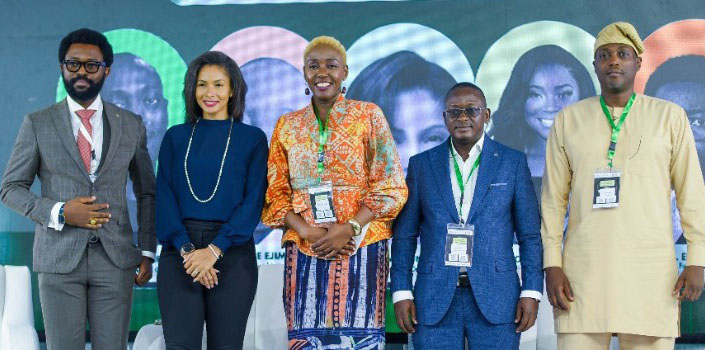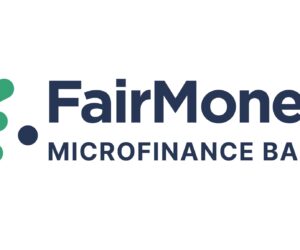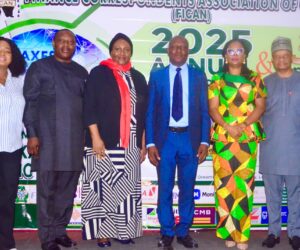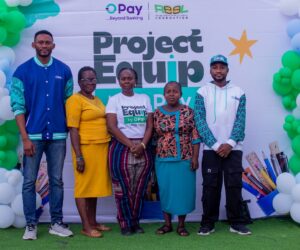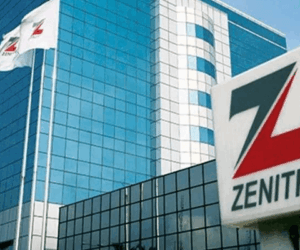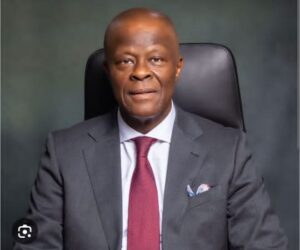2
Nigeria’s drive to achieve its Sustainable Development Goals (SDGs) has gained significant momentum, with stakeholders in the impact investing ecosystem mobilising over N1.1 trillion to fund businesses delivering measurable social and environmental value.
Yet, the country still faces a daunting $31.5 billion annual funding gap, underscoring the urgent need to align domestic and international capital towards inclusive, sustainable growth.
These insights emerged last week in Lagos at the 8th Annual Convening on Impact Investing, hosted by the Impact Investors Foundation (IIF) — Nigeria’s leading non-profit platform advancing impact-driven finance. The two-day event, themed “Strengthening and Scaling the Nigerian Impact Economy,” gathered investors, policymakers, development partners, fund managers, entrepreneurs, and academics from Nigeria, the UK, Ghana, Israel, and across Africa.
Nigeria’s $31.5bn annual SDG financing need
Releasing its 2025 Impact Report at the event, the IIF revealed that Nigeria requires $31.5 billion every year to meet its SDG targets. Public spending and donor funds, however, remain grossly insufficient to bridge the gap.
The report painted a sobering picture: 56 per cent of Nigerians lived below the national poverty line in 2024, up from 49 per cent in 2023. It attributed the rise to persistent inflation, currency volatility, weakened purchasing power, and low productivity in labour-intensive sectors.
The Foundation warned that unless investment is channelled deliberately into enterprises that generate inclusive jobs and essential services, poverty and inequality would continue to deepen.
“Capital must be inclusive, capital must be just, and capital must be impactful,” said Etemore Glover, Chief Executive Officer of the IIF, in her opening address. She stressed that developing a resilient impact economy demands both behavioural and structural reforms in how public and private funds are mobilised and deployed.
N1.1trn mobilised for Impact enterprises
A major highlight of the convening was the presentation of the IIF’s new report, “Nigeria’s Impact Investing Ecosystem Mapping and Market Sizing Report: Key Insights and Strategic Opportunities.”
Iffat Mahmud, Regional Representative of Innovision Global Africa, revealed that over N1.1 trillion in impact financing has already been deployed to more than 700,000 small and medium-sized enterprises (SMEs) nationwide.
“This N1.1 trillion milestone is not just a number — it’s proof that Nigeria’s impact market is growing in both depth and coordination,” Mahmud said. “We’re seeing domestic capital work alongside international partners to fund businesses that deliver measurable social and environmental results. Capital providers are no longer waiting for perfect conditions; they are finding solutions within the system.”
She added that the ecosystem was showing signs of maturity, as policy reforms and market coordination continue to strengthen investor confidence. “Nigeria now accounts for about 15 per cent of Africa’s private capital transactions,” she noted. “The question is no longer whether capital exists, but how we align it to meet our development goals.”
$100m National Impact Investment Fund launched
To further catalyse inclusive finance, Glover announced the creation of the Nigerian Wholesale Impact Investment Fund, a $100 million blended finance vehicle designed to support high-impact enterprises.
Half of the initial capital — $50 million — will be provided by the Federal Government through the Ministry of Finance, while the remaining 50 per cent will be sourced from private and institutional investors.
“This fund represents a turning point,” Glover said. “It signals growing recognition of impact investing as a strategic instrument for national development. It also shows government’s willingness to partner with private capital to create shared prosperity.”
The fund will target enterprises in renewable energy, agriculture, manufacturing, and social services, with the dual goal of generating financial returns and measurable social outcomes.
$8bn Gender and Inclusion Strategy Launched
Glover also highlighted the IIF’s National Strategy for Gender Equity and Social Inclusion, a 10-year plan aimed at unlocking $8 billion in inclusive capital for women, youth, and persons with disabilities.
So far, 42 institutions — including banks, development finance institutions (DFIs), and impact investors — have committed to advancing the initiative. “We can no longer afford to exclude half of our population from economic opportunity,” Glover stated. “Inclusive capital is the foundation of sustainable development.”
Progress and policy shifts in the Impact Ecosystem
The IIF report showed that Nigeria remains one of Africa’s largest destinations for private capital inflows, but investment is still heavily concentrated in Lagos and the South-West, particularly in fintech and digital services. The northern regions, by contrast, receive limited investment, mostly in agriculture and microfinance.
Social sectors such as education, healthcare, water and sanitation remain severely underfunded.
A recurring challenge is the “missing middle” financing gap, where small and growing businesses require between N10 million and N500 million to scale but face steep barriers — from high collateral demands and short tenors to elevated interest rates.
Nonetheless, progress is emerging in local-currency financing through institutions such as the Development Bank of Nigeria (DBN), Bank of Industry (BOI), and InfraCredit, which are helping extend long-term, naira-denominated funding to critical sectors.
International partners including the IFC, AfDB, Afreximbank, British International Investment (BII), and FMO continue to anchor large-scale commitments that blend public and private funds to achieve national development outcomes.
Domestic capital, not aid, is the future
In his keynote remarks, Frank Aigbogun, Chairman of the IIF and Publisher of BusinessDay, urged Nigeria to move beyond dependence on declining global aid and concessional funding.
He stressed the importance of mobilising domestic capital sources — including pension funds, diaspora remittances, and corporate reserves — to finance the nation’s sustainable growth.
“We must grow Nigeria’s largely informal economy and expand access to catalytic finance for those who need it most,” Aigbogun said. “Support from abroad is welcome, but it is no longer enough. True sustainability must be locally anchored.”
He added that socially impactful enterprises are increasingly demonstrating that profit and purpose can coexist, with many now outperforming purely commercial ventures in long-term returns.
“At IIF, we have championed blended finance, supported the design of the Wholesale Fund, and advanced the gender inclusion roadmap,” he said. Now, we must focus on turning these frameworks into tangible investments that create value for communities.”
Global partners back Nigeria’s impact journey
The UK Government, through its UK–Nigeria Tech Hub, reaffirmed its commitment to supporting inclusive innovation. Oyinkansola Akintola-Bello, the Hub’s Country Director, said the UK’s ongoing investments in gender-responsive financing and enterprise support reflect a long-term partnership approach.
However, she emphasised that Nigeria must take ownership of its development financing future: “The UK will continue to support innovation and sustainability, but the real transformation will happen when Nigeria mobilises its own domestic capital to power its impact economy.”
Delegates from across Africa and Europe echoed this sentiment, noting that aligning domestic savings, pension assets, and philanthropic capital with impact-oriented businesses could unlock a new wave of inclusive industrialisation.
Turning conversations into commitments
Throughout the two-day convening, discussions centred on policy reform, blended finance, gender-lens investing, climate financing, and impact measurement.
Participants agreed that the time for dialogue had passed, and that tangible, trackable investment commitments must now follow. The event closed with the Annual Dinner and Awards Ceremony, recognising entrepreneurs, fund managers, and social enterprises driving measurable community impact.
Among the honourees was the Innocent Chukwuma Award for Social Impact, celebrating exemplary contributions by philanthropic, non-profit, and civil society organisations.
From awareness to action
Reflecting on the journey since the first convening in 2018, Glover said the IIF had grown from a small advocacy platform into a national catalyst for sustainable finance. “What started as a policy conversation has become a movement — a movement to redefine how capital serves people and planet,” she said.
She reaffirmed the Foundation’s commitment to working with public and private stakeholders to ensure that recommendations from the convening translate into concrete financing actions capable of advancing Nigeria’s sustainable development priorities.
“As we look ahead,” Glover concluded, “we must remember that our challenge is not the absence of capital, but the alignment of intent. When profit meets purpose, impact becomes inevitable.”

